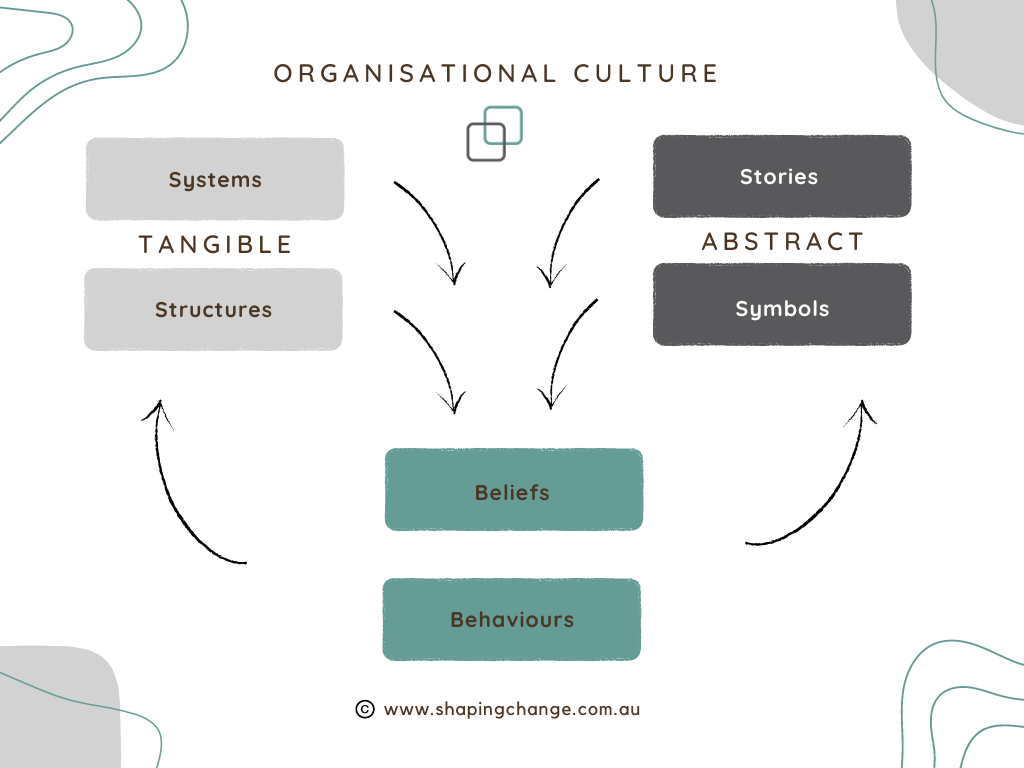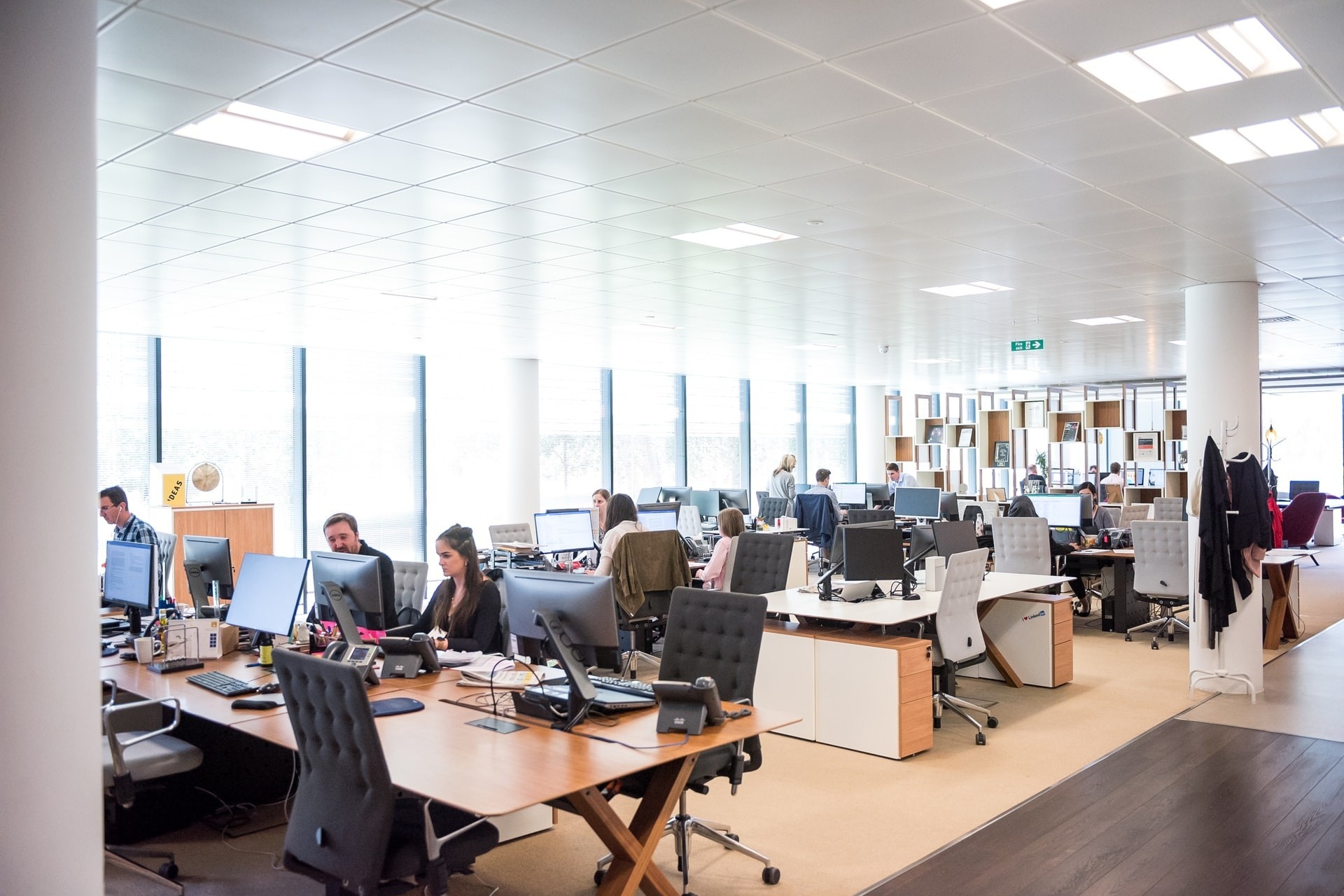Download a Case Study
This case serves as an inspiration for other organisations contemplating a similar journey. It demonstrates that with sustained effort, staff involvement, and a top-down commitment to change, a meaningful culture transformation is not only possible but can also deliver significant organisational benefits.
"Ros was a key part of the improvement we experienced in the culture at Newton & Henry. The insights that Ros brought to the analysis of the 2021 culture results assisted greatly in the action planning process as we worked toward our target culture. Ros’ depth of culture improvement experience across many different types of organisations ensures that her perspectives and insights are creative and experienced based. We would recommend Ros to any organisation looking for organisational culture improvement" - Andrew Gray: Partner, Newton & Henry.
Get the Case Study
Organisational Culture
Strategy and Coaching
Our award-winning and expert coaches can assist your organisation with developing a highly effective culture that improves company and employee performance.
Contact Us Today to Discuss Developing Your Organisation's CultureIt’s well known that a strong organisational culture is a shared denominator among the most successful companies. Research has shown culture is a competitive advantage. Publicly traded companies listed on Glassdoor’s Best Places to Work consistently outperformed their peers from 2009 -2019. And Google, known for its great corporate culture, is one of the most valued companies in the world.
So yes, organisational culture matters, but what is it? Hint: it’s much more than Google’s decompression capsules.
Corporate culture is the sense of a place: it’s hard to define, but it’s real. Corporate culture is such a nebulous concept that, although it has been researched extensively, no academic has yet come up with a generally accepted definition of culture. One of the reasons for this is the diversity of industries, companies, leaders, and workers – there simply is no such thing as the right corporate culture for all.
What is Organisational Culture?
Since all organisations are different with different personalities working there, each place of work develops its own culture over time. Culture can be described as the personality of an organisation. It is friendly or cold; rigid or relaxed; encouraging or punitive; profit-centered or people- centered; hierarchical, or flat.
Organisational culture reveals itself in countless ways - the way leadership responds in a crisis, how people within the organisation communicate with each other, and what and how the organisation celebrates.
It reveals itself in how people behave and everything that happens at the company. People behave according to the culture of the company, with a strong company culture acting as a clear guideline for behavior. In other words, everyone knows ‘’how things are done around here’’.
This ‘’correct’’ behavior is based on shared beliefs, norms and values of the organisation, which, in turn, are based on certain fundamental attitudes about factors like human nature and acceptable emotions to express. For instance, do those working at the organisation regard people as inherently good or bad; tolerant or intolerant; flexible or rigid? These basic assumptions will affect how employees, customers, clients and suppliers will be treated. Also, culture determines which emotions are acceptable to express. For instance, in Asian workplaces, anger or frustration must never be shown.
Why Organisational Culture is Important
A strong organisational culture improves the organisation's overall performance and has been shown to be the single most important factor in organisational success or failure. This is no accident. These companies attract the most talented candidates and they are the ones responsible for making the most material contributions to business operations.
Organisational culture creates a framework for behavior. People know what acceptable behavior is and what behavior won’t be tolerated. They also know what’s expected of them and what behavior is valued. This delivers positive assurance with the result that employees feel safe and comfortable in the workplace.
In companies with strong organisational cultures, employee engagement tends to be high. Engaged employees are passionate about their work and their workplace. They work harder because they care about the success of the enterprise they work for. According to Gallup’s meta-analysis, companies with a highly engaged workforce are 21% more profitable.
Corporate culture is a crucial factor in whether employees stay or leave. A positive culture contributes to employee satisfaction and is one of the main reasons why workers stay loyal to the workplace and don't leave their jobs. Two-thirds (65%) of employees report that their company’s culture is one of the main reasons for staying in their job.
Companies that focus on people rather than profits are also more likely to overcome a constantly changing business environment, the impact of disruptive technologies, regulation compliance challenges, and uncertainty about the future.
A company's organisational culture is indicative of its public image and reputation. A strong corporate culture equals a strong brand identity and tends to attract clients, customers and candidates. Workplaces with a weak organisational culture don’t find it as easy to attract business.

Qualities of a Great Workplace Culture
Although companies have distinct cultures, the main characteristics of a strong corporate culture can be identified by certain constant qualities. A robust corporate culture has the following characteristics.
-
A successful corporate culture is a purpose-driven culture
Purpose is integral to a strong organisational culture. In these companies, employees understand their own and the company’s long-term goals. There is purpose to their daily activities. Having a sense of purpose is essential to performance and wellbeing. Purpose is a natural motivator; it inspires and engages employees.
In addition, purpose-driven corporations are some of the most successful today. A 2010 Burson-Marsteller/IMD Corporate Purpose Impact study found that a strong and well-communicated corporate purpose build trust with stakeholders and explains why some European companies outperform their peers by 17%.
-
Effective communication
Communication within companies is notoriously ambiguous and often downright unprofessional. This is not the case in companies with a strong corporate culture where frank communication is common because workers feel safe to express their true thoughts and feelings.
When employees have a high regard for the place they work and those they work with, they communicate in a courteous manner that shows respect. No sloppy emails with spelling mistakes and slang do the rounds. Communication that is characterised by courtesy is unlikely to be offensive or hurtful, although honest and direct.
-
Psychological safety
A strong corporate culture provides the psychological safety that facilitates honest feedback. Adobe is a company that understands that people need to feel secure and safe in their workplace to do their best work.
The company has a great culture. Employees enjoy continual training and the culture promotes risktaking without fear of penalty for failure.
-
Employee empowerment
One of the characteristics of great company culture is employee empowerment. These companies offer employees opportunities for continual growth and career development. Especially among millennials, the opportunity for career development is an important factor when choosing a company to work for or stay in a position.
A great example is Adobe. Adobe gives its employees challenging projects and then provides them with everything they need to succeed. Prime among these are trust and independence. Employees are treated like responsible adults who can be trusted to do a stellar job. They set their own goals and are not micromanaged in any way.
-
Successful teamwork
In the current business environment, company success depends on successful teamwork. Effective communication is crucial for successful teamwork. So are purpose and structure. Teams that function in a strong corporate culture know what the purpose of the team and its task are, and being engaged employees, they will collaborate to achieve well-understood company goals.
-
Embraces diversity
A strong corporate culture is one that embraces diversity. Such organisations report higher employee satisfaction, according to Gallup. An example of a company that has a great corporate culture and embraces inclusion and diversity is Google.
Another one is Microsoft. Under the leadership of Satya Nadella, Microsoft has transformed its culture from focusing on competitiveness to focusing on people. At the same time, Microsoft one of the top companies in the world for diversity and inclusion.
They may not always get it right – diversity and inclusion is a complex issue – but Google and Microsoft are leading the way for other companies.

How to Develop an Effective Organisational Culture
Workplace culture usually develops organically over time. But that does not mean it’s set in stone. Company leaders can always work on improving the current culture without abandoning what the company is doing or stands for. Leaders can work to broaden and enhance the current culture.
Company leaders can use the following suggestions to work towards a winning corporate culture.
-
Involve employees
Find out from employees how they feel about the current culture at work. What would they like to change, what would they eliminate and what would they add. Incorporating employee suggestions will be an extension of an organically derived company culture that’s uniquely appropriate for the business and its people.
-
Provide purpose and meaning
Purpose and meaning are important for today’s workers. People who are educated, won’t stay interested in a job that lacks meaning. If they can’t see the point of daily tasks, there is no engagement and no job satisfaction, and that leads to high employee turnover.
A great mission statement and core values that are properly communicated go a long way to create meaning for workers. Make sure that employees understand how the work that they do contributes to the company’s mission. This understanding creates meaning for them.
-
Make recognition part of your culture
Recognition makes people flourish. People thrive on being recognised for a job well done. And the more they are recognised, the more they exhibit behaviors that elicit recognition and praise.
A culture of recognition excites and motivates employees and teams and boosts employee engagement, retention and productivity.
In particular, be sure to reward actions that exemplify company values.
-
Emphasise employee wellness
The pandemic has brought employee wellness to the forefront. Any organisation that doesn’t have a wellness program for its employees can’t be said to have a good corporate culture.
Company leaders who want to strengthen their corporate culture, can take note of this survey result: 77% of employees agree that wellness programs can positively affect corporate culture, especially when employees are convinced of leadership’s genuine care and concern.
Employees are more loyal, motivated and productive when they know that their employer cares about their physical, emotional, financial and social wellbeing.
-
Encourage strong connections between employees
Good relationships between workers are the basis of a strong corporate culture. When employees only get to know the few people that they closely work with, pockets of small groups develop that are not necessarily cohesive. A strong culture can’t grow from that. Colleagues need to interact with each other separate from work and work-related activities, so they can get to know each other and have a chance to develop friendships.
Teambuilding activities can help to foster strong bonds between workers. Teambuilding activities have become very important in these times when a large proportion of employees work remotely and relationships are suffering.
-
Cultivate learning and development
At a workplace that has a great corporate culture, you’ll also find ample opportunities for employees of all levels to improve and learn. Mentoring is common and training opportunities abound. Continual learning opportunities and investment in employee development have been shown to improve company culture.
-
The leaders should set the example
The company culture lives or dies by the example of its leaders. Your company leaders must live the company values and be its strongest advocates.
One person that sets an example for other company executives in this regard is Richard Branson. Through what he says and how he behaves, the world knows exactly what the Virgin brand stands for: fun, audacity, adventure, and being unafraid.
A leader can represent an entire company culture and inspire its entire workforce.

Corporate culture is the public face of an enterprise. A strong corporate culture brings with it many benefits, including a strong brand identity that attracts clients, customers, and top talent. Strong organisational culture belongs to organisations that put people first, make them feel valued and reward them for work that helps the enterprise to succeed.
Testimonials
"In my time working with Ros she has been the cornerstone of a large, complex and incredibly comprehensive organisational wide cultural change initiative. Her energy, drive and personal strength has been inspirational and impacts everyone she works with. She has a unique skill set in that she combines an incredible depth of facilitaion and training capability with strategic understanding. With this she becomes instrumental in both shaping a people strategy and also then tranlating that strategy into creative, engaging and high impact organisational initiatives. She is a delight to work with."
-Matt Shanahan
"Ros is a skilled organisational development executive, who has a great understanding of learning styles and leadership development. She is an effective facilitator of groups, and has been involved in both the design and delivery of in-house leadership programs. She is energetic, and is a good listener and communicator."
-Peter Davis
"I have had the pleasure of working with Ros and find her to be a wealth of knowledge as a solutions and action-oriented professional. Ros is an excellent facilitator and her passion for helping her colleagues manage through the change process is evident in her work. She is agile thinker able to engage and empathise with her audience, while providing challenging insight that encourages one to think outside parameters. She is a valuable asset to her organisation!"
-Stacey K Woods
About Ros
Rosalind Cardinal is the Managing Director of Shaping Change, a consultancy specialising in improving business outcomes by developing individuals, teams and organisations.
Ros is an outstanding facilitator whose passion is evident in her work. She is able to engage and empathise with her audience, while providing challenging insight that encourages people to think outside parameters. She has a unique skill set that combines an incredible depth of facilitation and training capability with strategic understanding. With this she becomes instrumental in both shaping a strategy and also then translating that strategy into creative, engaging and high impact organisational initiatives
Ros’ many certifications include LSI/GSI/LI and OCI/OEI (Human Synergistics), Mayer Salovey Caruso Emotional Intelligence Test (ebpsych), Myers Briggs Type Indicator Step 1 and 2 (APP), 4Mat Learning Type Measure/Hemispheric Mode Indicator/Leadership Behaviour Indicator (4Mat Aust.), Lencioni’s 5 Dysfunctions of a Team, The Leadership Practices Inventory, Benchmarks and Skillscope (CCL), Political Intelligence and Conversational Intelligence®. Ros is also a certified Change Management Practitioner, an accredited practitioner in Human Instincts, an accredited Appreciation at Work facilitator and a certified Neurocoach and Neuroleader. Ros is a Certified Member of the Australian Human Resources Institute (CAHRI), a member of the Australian Institute of Training and Development (AITD) a Professional Member of the Australian Association for Psychological Type (AusAPT), a member of the Australian Institute of Company Directors (AICD) and a member of the Neuroleadership Institute. She holds a Graduate Diploma in Human Resources from Deakin University, an Australian Human Resources Institute Professional Diploma in Human Resources and has completed the Australian Graduate School of Management Executive Program, Strategic Human Resource Management.
In addition to Ros’ own blog, she is a regular contributing writer for Leaders in Heels, The Huffington Post, “Thrive Global”, and “People Development” Magazine. Ros’ business story is showcased in the 2014 book “Australian Entrepreneur”. In 2016 Ros released her bestselling and award nominated book “The Resilient Employee: The essential guide to coping with change and thriving in today’s workplace”.
Shaping Change has been a finalist in the Australian Small Business Champions Awards every year since 2015, and in 2015 Ros was a winner in the Australian Edupreneur Awards (Business Consulting category). In 2016, 2017, and again in 2018, Ros was awarded Leadership Coach of the Year – Australia by Corporate LiveWire in their global Innovation and Excellence Awards. In 2020 Ros was a finalist in the prestigious Telstra Business Women’s Awards. In 2021 Shaping Change was a finalist in the Australian Institute of Training and Development Training Awards for the best Diversity and Inclusion program. In 2022 Corporate LiveWire awarded Shaping Change Executive Coaching Service of the Year – Australia and Ros was a finalist in the inaugural Australian Women’s Small Business Champions Awards. In 2022, in a career highlight, Ros was a recipient of a World of Difference Award from The International Alliance for Women (TIAW). These awards recognise extraordinary women and men from around the world who have contributed to the economic empowerment of women.


